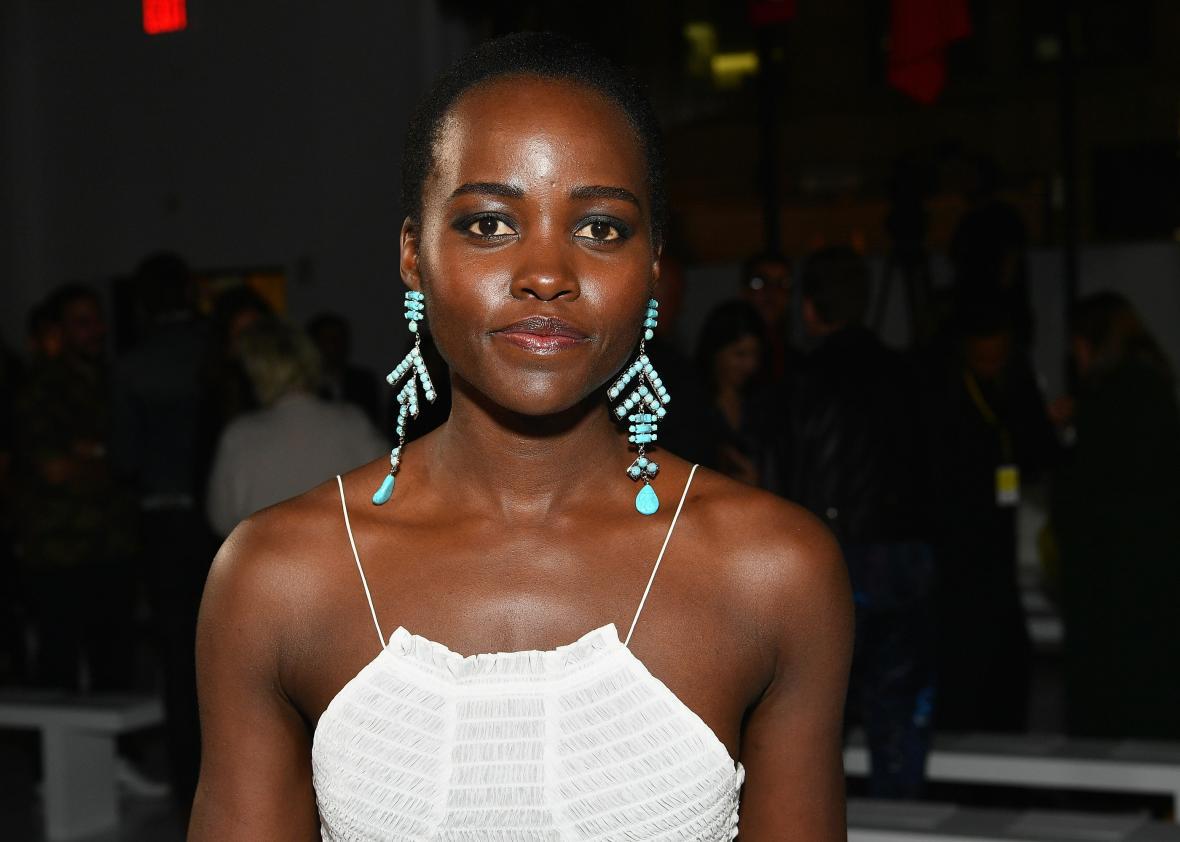In news that will surprise nobody, another high-profile actress has added her name to the long list of women that a lecherous Harvey Weinstein propositioned her at a more vulnerable point in her career.
Lupita Nyong’o, best known for her Oscar-winning performance in her first ever feature film, 12 Years a Slave, has penned a New York Times op-ed revealing her extended harassment at the hands of Weinstein, from the interest he showed in her as an acting student in 2011 to his veiled threats at her final refusal of him.
Nyong’o reveals that early in their acquaintance Weinstein invited her to his house for a screening before—lo and behold—offering her a massage. The young actress, after realizing he wasn’t joking, offered to give him one instead, if only to remain physically in control—“to know exactly where his hands were at all times”—while formulating an escape route. She articulates the confusing boundaries and powerful pressures at the heart of so many of Weinstein’s assaults:
I didn’t quite know how to process the massage incident. I reasoned that it had been inappropriate and uncalled-for, but not overtly sexual. I was entering into a business where the intimate is often professional and so the lines are blurred. I was in an educational program where I was giving massages to my classmates and colleagues every day. Though the incident with Harvey had made me uncomfortable, I was able to explain and justify it to myself, and shelve it as an awkward moment. His offer to me to be a part of the HBO show was a very attractive one and I was excited about it, especially as I would be graduating in another year. I didn’t know how to proceed without jeopardizing my future. But I knew I would not be accepting any more visits to private spaces with Harvey Weinstein.
Her account shows what it looks like when you say a polite but firm “no” to Harvey Weinstein: He just keeps going. Weinstein continued to invite Nyong’o to events, chipping away at her guard by putting on a normal demeanor in group settings and lulling her into a false sense of security that she could be alone with him again. The very next time she was, he invited her up to his hotel room, telling her that “If I wanted to be an actress, then I had to be willing to do this sort of thing,” pointing to other women who had benefited from his favor. After she refused, he cut short their meal.
I needed to make sure that I had not awakened a beast that would go on to ruin my name and destroy my chances in the business even before I got there.
“I just want to know that we are good,” I said.
“I don’t know about your career, but you’ll be fine,” he said. It felt like both a threat and a reassurance at the same time; of what, I couldn’t be sure.
Lupita Nyong’o’s account is an important read for any man who still does not truly understand the situation that she, along with Ashley Judd, Asia Argento, Kate Beckinsale, Rosanna Arquette, Gwyneth Paltrow, and so many women worldwide have found themselves in. It shows in clear detail the thought process that goes through many women’s heads when faced with a threat like Weinstein, be it an aggressive guy at a bar or a flasher on the subway. She decides it is safer to be polite so as not to aggravate the situation, to go along with some of it to mitigate the risk to her safety. She silently formulates an escape plan, trying to remain a few steps ahead of her aggressor, and she laughs awkwardly at being called “stubborn,” instead of showing fear or anger.
It all adds up to a horrible reminder of the gender power imbalance Harvey Weinstein thrived on, and the painful expectation that women—no matter who they are—remain polite and friendly, even in the face of sexual harrassment.
